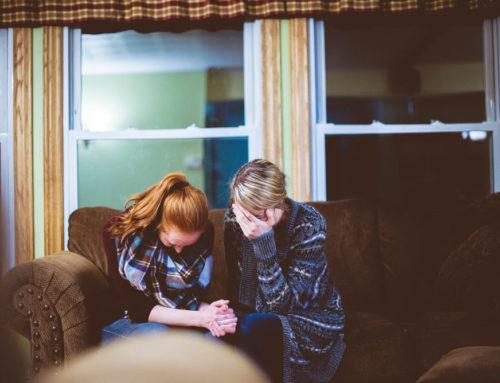Being mentally healthy and getting through difficult times requires the support of our family and friends. Yet, too often, we find ourselves feeling judged by these very people. I want you to take charge of creating a supportive community so that you have those positive connections, in both good and difficult times. Here are some things to consider:
We don’t get to choose all of our relationships. Of course, it would be ideal if we could eliminate all the toxic people in our lives, but we don’t have a choice about many relationships, such as those with family and co-workers. There are strategies for dealing with family members who can be difficult:
- Set boundaries. You are allowed to say “no” or “that is not OK” to family members if they cross a line. It is also OK to opt out of things that you know will be toxic. If your sister gets drunk and puts you down every time you go to dinner, stop engaging with her when alcohol is involved.
- Remember that trust is earned. We trust people because they consistently do what they say they will do. Maybe you confide in your mother because you would really like to have that kind of relationship with her. However, she repeatedly tells other people what you’ve shared with her. She has not yet earned your trust and isn’t worthy of your confidences. Talk to your sister or best friend instead.
We have a choice over some of our relationships. On the other hand, you do have a choice over your friendships. It is your responsibility to choose people who deserve your friendship.
- Examine your current relationships. If you don’t feel supported by your friends, look to see if there is a pattern. Do you find people with sad stories and befriend them so you can take care of them? Do you have low self-esteem and choose people who put you down because it’s too uncomfortable to be around people who are kind to you? Be aware of your pattern and the types of relationships you tend to establish.
- Develop supportive relationships. In your examination of your relationships, pay attention to the people who are supportive and empathetic, not judgmental. These are the people to lean on during difficult times because their response will be empathetic, not destructive. You may not always hear what you want to from friends and family, but if you are honest with yourself, you will know if they have your best interest in mind when they say something hard to hear or if they are merely kicking you when you are down.
- Be the friend you want to have. Relationships are two-way streets and part of having supportive relationships is being a supportive person to your friends and family.
A strong predictor of mental health is our perceived social support. We all need to know that we are connected to people who care about us. Sometimes we have to tolerate difficult people, but we can have boundaries in place to limit their toxicity. Creating a supportive community is about putting in the needed time and energy to grow and maintain healthy, positive relationships.






